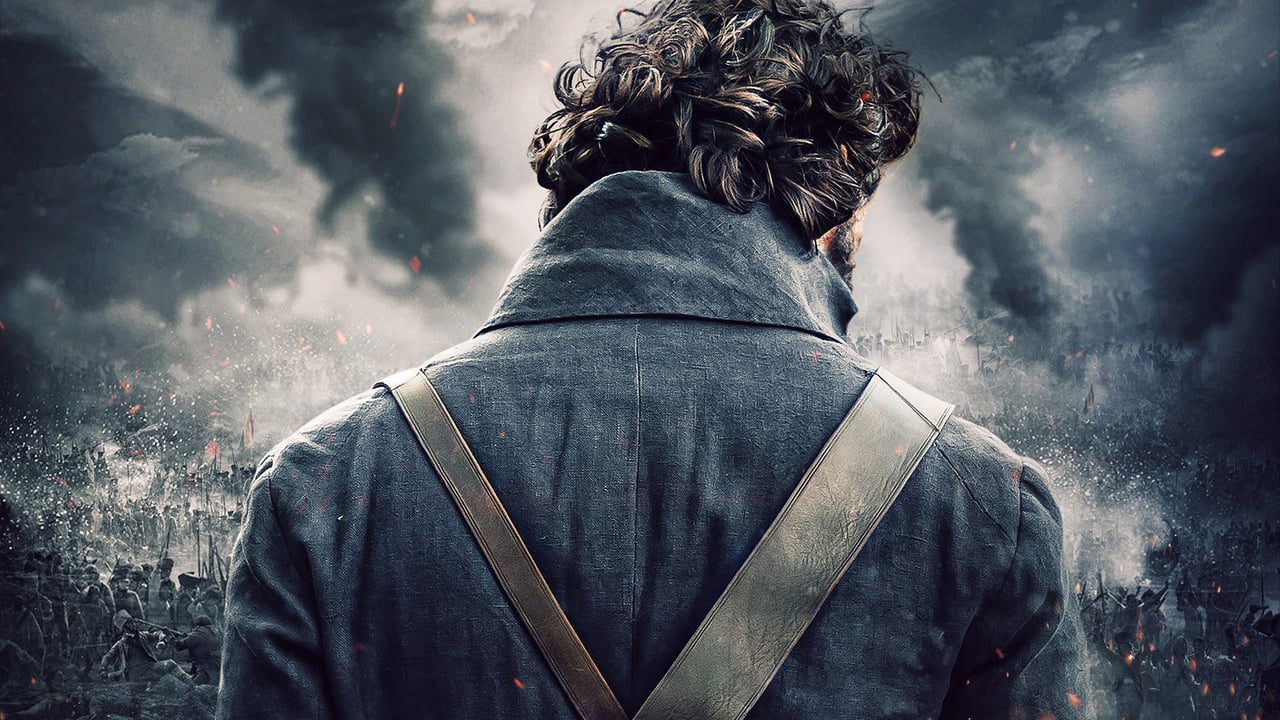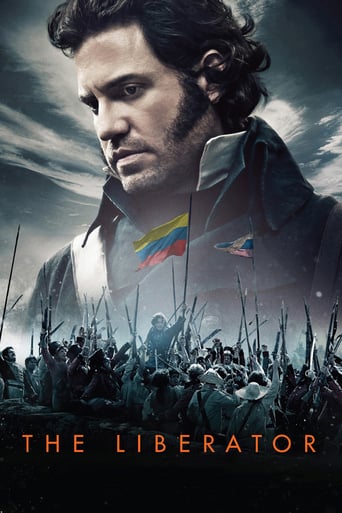

When "2001: A Space Odyssey" came out, some of us spent long hours discussing the meaning of the disjointed ending. Then I read the novel and discovered that the ending made perfect, even banal, sense; it was just that Kubrick had cut away the connecting logic and left us with isolated images. Something similar happens in this attempt to transpose Bolivar's epic struggle to two hours on-screen; incidents appear with no clear reason or subsequent implication. Danny Huston, compelling and charming as always, appears initially as an Englishman whose role seems central, only to disappear for most of the film after a few scenes. And when he does reappear, it is implied (quite counter-historically) that he had something to do with a famous attack on Bolivar's life. Or maybe not, since transitions are not this film's strong point. The memorable Manuela Saenz appears all at once but is never even named and it is only AFTER the attack in question that we hear a brief mention of her courage - with no hint that she in fact may have saved Bolivar's life, earning her the nickname "The Liberator of the Liberator". We briefly see Sucre close-up before he gets lost in the subsequent crowd of faces, so that when news comes of his assassination (with no hint that it was probably one of Bolivar's own officers who arranged it) we see Bolivar upset, but with no clear idea of why (still less that Bolivar supposedly cried out, "They have slain Abel!" foreseeing the impact it would have on the movement's hopes). Basically, if you do not already know much of this story, you may be swept up in the panoramic battles, the personal conflicts and some very erotic moments, but you won't really follow what's going on. If you do know it, you will be frustrated by how key events are given equal weight with some which may not even have happened (notably the end, which corresponds to no documented reality I know of). It does not help that the film lingers early on on what is essentially back story, wasting valuable screen time on what is apparently meant to be character development, but ultimately slows and clutters a story that needs far more delineation. Will you enjoy the film? If you like pageantry and passion, very likely. Will you come away much more informed about important historical events, or a complex figure, than if you had watched a completely fictional costumed drama? Not really.
... View MoreThe setting and scenery were great. But before I even watched it I saw this Edgar guy acting in it, and I quickly assumed that his main motif in this movie is to show the world that he has sex with women. Probably some sort of twisted mentality of his that he wants to show his childhood friends what he couldn't do back then when everyone was mocking him (my personal opinion).I judged it that way because I not only saw Carlos, but a couple more of his movies and they are all the same.. a guy doing his role in a movie in addition to wanting to express his sexuality to the audience. Being bare naked in Carlos; the priest who "I has sex with her" in deliver us from evil. Now this.. what a viewer may portray from such an overrated movie is that Simon Bolivar was a pussywhipped moron who failed because his main sights were on women than his revolution.Other than this troubled actor's involvement in such a film, the production was not bad.. with the exception of several unrealistic events that took place.
... View MoreI am not much of a history person and I don't often watch biographic movies but Simon Bolivar is one of the most interesting historical figures so I've made sure not to miss out on this one.I've enjoyed the movie a lot from the beginning to its end. While at some points I felt the movie was a bit stretched out, that is the only complaint I am gonna have. The landscapes used for filming were beautiful, the costumes, make-up and hairdo looked so realistic and reminiscent of that era I was quite surprised, the plot had enough twists and turns and, most importantly, the acting was superb. I loved the way Simon Bolivar and his peers were portrayed and the constant inner battle of the legendary general and later president that was shown throughout the movie. This film was all about the man that he was and the man he became hardened through loss and war.
... View MoreI saw this film a few months back, it was a limited release film. My main reason for watching this film was for the History aspect of it, I've not seen anything that relates to the South American Revolution and was eager to see it, because no filmmaker in Hollywood has made a film with that theme.The film takes place in the early 1800s with Spain dealing with rebellion through the continent, as the people from Latin America seek freedom from Spain. So on to the review, I enjoyed the film greatly, with great visuals, superb acting, great photography. What the film lack and this is what disappointed me the most was story structure, character development. I wanted to get to know some these historic figures a lot more, it seemed rush a times, during certain scenes you wanted to know what this guy was about or some of the female characters. I felt this film had a lot of potential to be something more if they just spend more time on story and the characters.
... View More